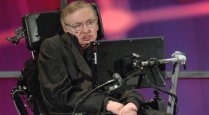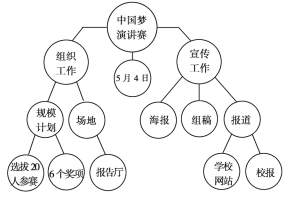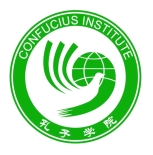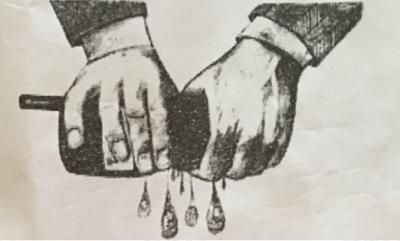题目内容
【题目】阅读理解
阅读短文,从每题所给的四个选项(A、B、C和D)中,选出最佳选项。
 Stephen Hawking is perhaps the world’s most famous living physicist. To the public, he’s best known as an author of bestsellers such as The Universe in a Nutshell and A Brief History of Time, which have brought an appreciation of theoretical (理论上的) physics to millions. He is regarded as having one of the brightest minds on the planet. But outstanding astrophysicist (天体物理学家) Stephen Hawking has admitted that he did not learn to read until he was eight years old.
Stephen Hawking is perhaps the world’s most famous living physicist. To the public, he’s best known as an author of bestsellers such as The Universe in a Nutshell and A Brief History of Time, which have brought an appreciation of theoretical (理论上的) physics to millions. He is regarded as having one of the brightest minds on the planet. But outstanding astrophysicist (天体物理学家) Stephen Hawking has admitted that he did not learn to read until he was eight years old.
In a public lecture at the Royal Albert Hall, Professor Hawking also admitted that he was not active in studying while at Oxford University, where he studied physics, and that only the news that he might die young from motor neurone (运动神经元) disease made him focus on his work.
Professor Hawking said, “My sister Philippa could read by the age of 4 but then she was brighter than me.” He said that he was common at school and was never further than halfway up his class. “My classwork was very untidy, and my handwriting was very bad in the teachers’ eyes,” he said. “But my classmates gave me the name Einstein, so probably they saw signs of something better.”
But he said that it was when doctors told him that he probably only had a few years to live at the age of 21 that he began to focus on his work, which resulted in some of hs early achievements. He said, “When you are faced with the possibility of an early death, it makes you realize that life is worth living and there are lots of things you want to do.” Hawking serves as Lucasian Professor of Mathematics at the University of Cambridge, where he continues to contribute to both high-level physics and the popular understanding of our universe.
【1】When Stephen Hawking studied in Oxford University, he was ________ .
A. clever B. lazy C. bright D. mean
【2】What made Stephen Hawking devote himself to his work?
A. Patience. B. Knowledge.
C. Disease. D. Laziness.
【3】From whom did Hawking get a fair judgment when he was at school?
A. His sister. B. His classmates.
C. His teachers. D. His parents.
【4】What can we learn from the last paragraph?
A. Hawking didn’t realize his dreams in physics.
B. Hawking succeeded in overcoming the fear of an early death.
C. The purpose of the doctor was to encourage him to work hard.
D. The doctor warned Hawking that his life might be taken away by hard work.
【答案】
【1】B
【2】C
【3】B
【4】B
【解析】
本文是一篇记叙文,向我们介绍了著名的天体物理学家斯蒂芬·霍金。
【1】 B 推理判断题。根据第二段中的Professor Hawking also admitted that he was not active in studying while at Oxford University可知,他在大学里学习并不积极主动,因此B项“懒惰的”和文中含义一致。
【2】C 细节理解题。由第二段最后一句可知,是“运动神经元疾病”促使他有所作为。故选C项。
【3】B 细节理解题。根据第三段最后一句话可知,尽管老师不看好他,同学们仍给他“爱因斯坦”的绰号,他们看到了霍金身上优秀的一面。故选B项。
【4】B 推理判断题。由最后一段可知,霍金有可能要面对英年早逝的不幸事实,但是他没有被这个不幸的消息吓到,而是努力战胜疾病,取得了很大的成就。故选B项。

 通城学典默写能手系列答案
通城学典默写能手系列答案【题目】阅读下面的文言文,完成问题。
颜斶①说齐王
齐宣王见颜斶,曰:“斶前!”斶亦曰:“王前!”宣王不说。左右曰:“王,人君也;斶,人臣也;王曰‘斶前’,亦曰‘王前’,可乎?”斶对曰:“夫斶前为慕势,王前为趋士;与使斶为趋势,不如使王为趋士。”王忿然作色曰:“王者贵乎,士贵乎?”对曰:“士贵耳,王者不贵。”王曰:“有说乎?”斶曰:“有。昔者秦攻齐,令曰:‘有敢去柳下季②垄③五十步而樵采者,死不赦。’令曰:‘有能得齐王头者,封万户侯,赐金千镒。’由是观之,生王之头曾不若死士之垄也。”宣王默然不说。
宣王曰:“嗟乎,君子焉可侮哉!寡人自取病耳。愿请受为弟子。且颜先生与寡人游,食必太牢,出必乘车,妻子衣服丽都。”颜斶辞去,曰:“夫玉生于山,制则破焉;非弗宝贵矣,然夫璞不完。士生乎鄙野,推选则禄焉;非不得尊遂也,然而形神不全。斶愿得归,晚食以当肉,安步以当车,无罪以当贵,清静贞正以自虞。”则再拜而辞去。
君子曰:斶知足矣,归真反璞,则终身不辱。
【注】①颜斶:齐国隐士。②柳下季:即柳下惠,姓展名禽字季,鲁国贤人,居于柳下。③垄:指坟墓。
【1】对下列句子中画线字的解释,不正确的一项是
A.宣王不说 说:通“悦”,高兴
B.夫斶前为慕势 前:名词用作动词,上前
C.士生乎鄙野 鄙:以……为边邑
D.则再拜而辞去 去:离去,离开
【2】下列句子中,加粗字的意义和用法相同的一组是
A. B.
B.
C. D.
D.
【3】以下句子分别编为四组,全都表明颜斶不慕权势、保持士的高尚气节的一组是
①斶亦曰:“王前!”
②左右曰:“王,人君也;斶,人臣也;王曰‘斶前’,亦曰‘王前’,可乎?”
③斶对曰:“……与使斶为趋势,不如使王为趋士。”
④王忿然作色曰:“王者贵乎,士贵乎?”
⑤颜斶辞去,曰:“……士生乎鄙野,推选则禄焉;非不得尊遂也,然而形神不全。……”
A.①③④ | B.①③⑤ | C.③④⑤ | D.②④⑤ |
【4】下列对原文有关内容的理解和分析不正确的一项是
A.齐宣王召见颜斶时让颜斶上前来,颜斶也让大王上前来,惹得齐宣王很不高兴。
B.颜斶谈到砍下齐王头颅封邑万户、赐金千镒的事情,意在说明“王者”尊贵。
C.齐宣王最终认识到随便侮辱士人是自讨没趣的做法,于是就请求做颜斶的学生。
D.颜斶没有接受齐宣王做学生的请求,郑重地辞王而去,回到本乡,终身不受侮辱。
【5】将下列句子翻译成现代汉语。
①王忿然作色曰:“王者贵乎,士贵乎?”
②由是观之,生王之头曾不若死士之垄也。
③晚食以当肉,安步以当车。






